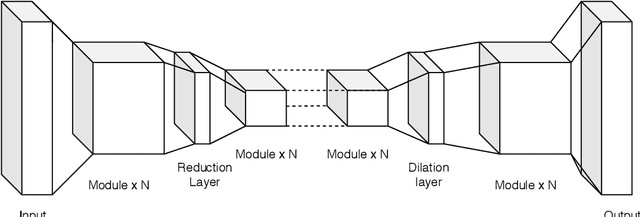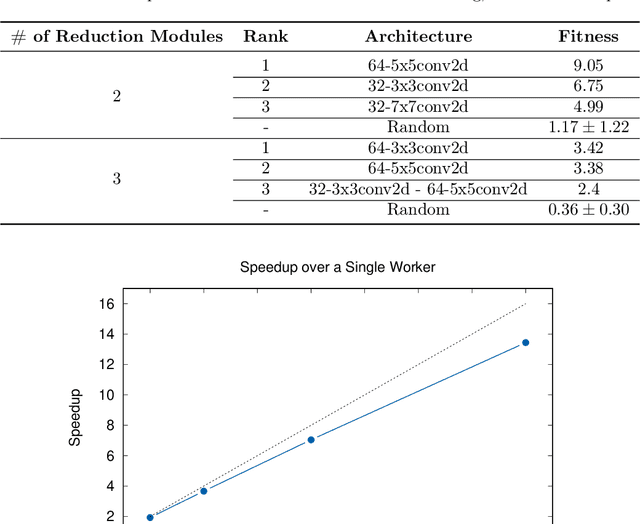Distributed Evolution of Deep Autoencoders
Paper and Code
Apr 16, 2020



Autoencoders have seen wide success in domains ranging from feature selection to information retrieval. Despite this success, designing an autoencoder for a given task remains a challenging undertaking due to the lack of firm intuition on how the backing neural network architectures of the encoder and decoder impact the overall performance of the autoencoder. In this work we present a distributed system that uses an efficient evolutionary algorithm to design a modular autoencoder. We demonstrate the effectiveness of this system on the tasks of manifold learning and image denoising. The system beats random search by nearly an order of magnitude on both tasks while achieving near linear horizontal scaling as additional worker nodes are added to the system.
 Add to Chrome
Add to Chrome Add to Firefox
Add to Firefox Add to Edge
Add to Edge